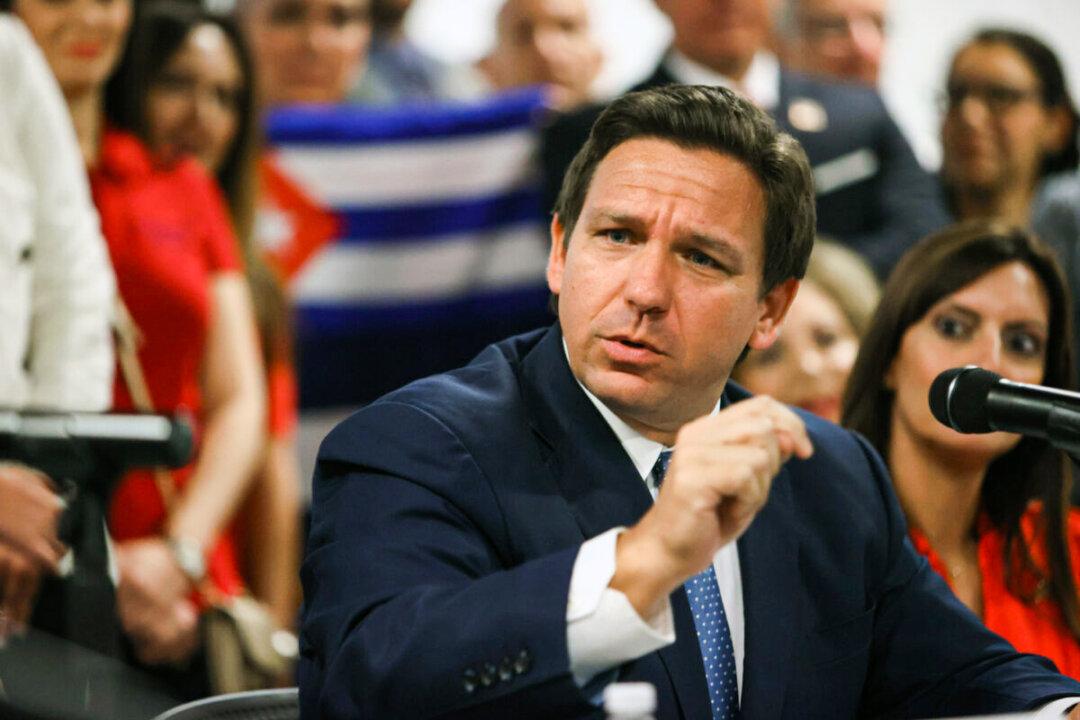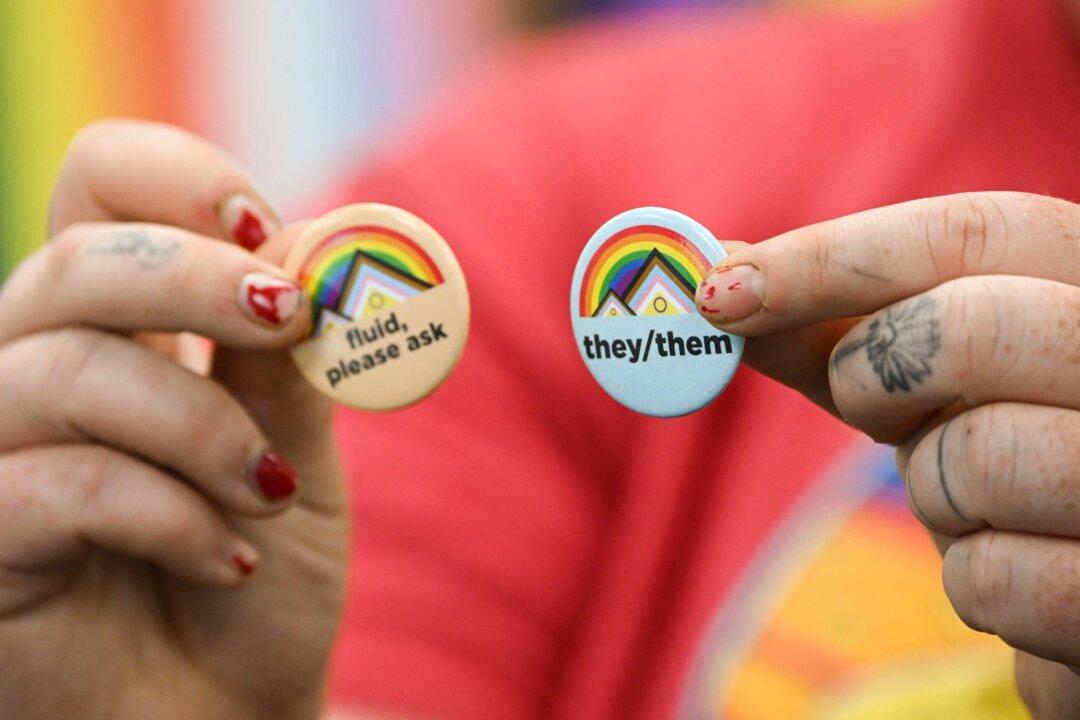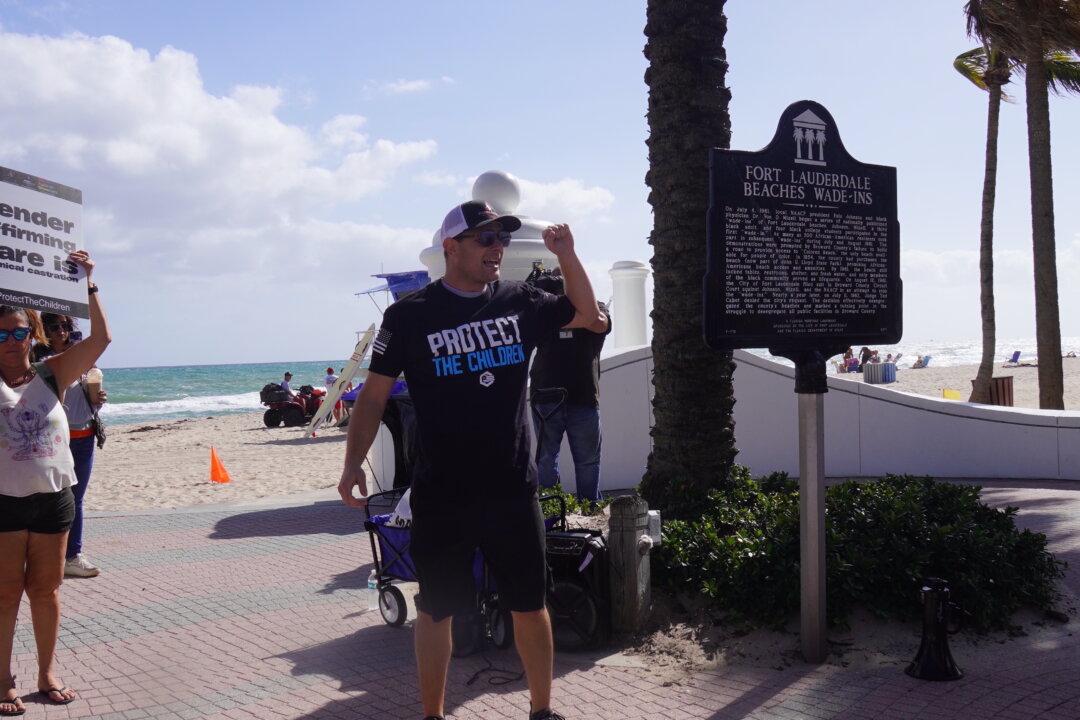PUNTA GORDA, Fla.–Gov. Ron DeSantis on May 11 blasted the Biden administration’s new Disinformation Governance Board’s executive director, Nina Jankowicz, as being “totally off her rocker.”
“She has engaged in misinformation, and she has talked about things like Russia collusion and advocated for Coronavirus, lockdowns, and all these other things,” the Republican governor said of the newly appointed Jankowicz at a press briefing in Lafayette and Gilchrist counties. “They put this person in charge of it who is just totally off her rocker.”




